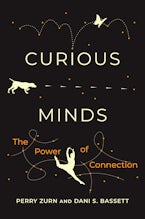An introduction to the psychology of learning that summarizes and integrates findings from both functional psychology and cognitive psychology.learning.
Learning unites all living creatures, from simple microbes to complex human beings. But what is learning? And how does it work? For over a century, psychologists have considered such questions. Behavior analysts examined the ways in which the environment shapes behavior, whereas cognitive scientists have sought to understand the mental processes that enable us to learn. This book offers an introduction to the psychology of learning that draws on the key findings and major insights from both functional (behavior analysis) and cognitive approaches.
After an introductory overview, the book reviews research showing how seemingly simple regularities in the environment lead to powerful changes in behavior, from habituation and classical conditioning to operant conditioning effects. It introduces the concept of complex learning and considers the idea that for verbal human beings even seemingly simple types of learning might qualify as instances of complex learning. Finally, it offers many examples of how psychological research on learning is being used to promote human well-being and alleviate such societal problems as climate change.
Throughout the book, boxed text extends the discussion of selected topics and “think it through” questions help readers gain deeper understanding of what they have read. The book can be used as an introductory textbook on the psychology of learning for both undergraduate and postgraduate students or as a reference for researchers who study behavior and thinking.













